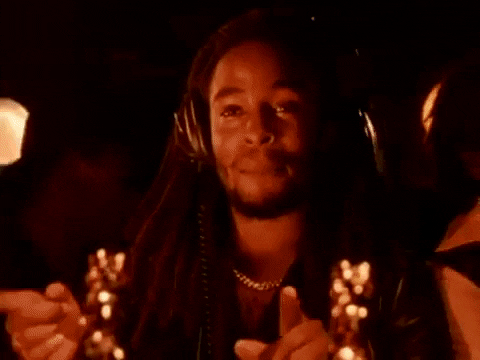The subject of presidential pardons has been popular internet fodder since Donald Trump issued pardons or commutations to 143 people last Tuesday (January 19), his last full day in the Oval Office.
Among those who were pardoned were Lil Wayne, Kodak Black and Death Row Records co-founder Michael “Harry-O” Harris, three figures from the rap community who were either already incarcerated or facing years in prison. But long before Trump had his eyes set on the White House, Fugees affiliate John Forté needed a Hail Mary of his own — this time, from the 43rd President of the United States George W. Bush.
Growing up in Brooklyn, Forté fell in love with classical music at an early age, studying violin and composers such as Antonio Vivaldi. He eventually relocated to New Hampshire to attend the highly selective Phillips Exeter Academy, where he graduated in 1993. After enrolling and subsequently dropping out of New York University (NYU), he started his professional music career as an artist and repertoire executive at Rawkus Records.
View this post on Instagram
In the early ’90s, Forté crossed paths with Lauryn Hill who introduced him to the rest of the Fugees. He wound up co-writing and producing two songs for the trio’s Grammy Award-winning album The Score, “Family Business” and “Cowboys.”
After winning a Grammy for his work on the multi-platinum album — which has sold over 20 million copies worldwide — and circling the globe with the group, he appeared on Wyclef Jean’s “We Trying to Stay Alive” (depicted in the graphic above). The song sampled The Bee Gees’ iconic disco hit “Staying Alive” and was named one of VH1’s “100 Greatest Hip Hop Songs of All-Time.” A year later, he followed through with his debut solo album Poly Sci featuring production from Wyclef.
But things came to a screeching halt in 2000 when Forté was arrested at the Newark International Airport for accepting a briefcase filled with $1.4 million worth of liquid cocaine. Forté, who was just 25 at the time, was charged with possession with intent to distribute cocaine and conspiracy to distribute. Consequently, he was sentenced to the mandatory minimum 14 years at FCI Loretto, a low-security federal prison in central Pennsylvania.
With the help of Senator Orrin Hatch and folk legend Carly Simon — who appeared on his 2002 sophomore album I, John and “religiously” advocated for his release — Forté was able to secure a commutation from Bush on November 24, 2008 and walk out of FCI Loretto four weeks later.
Embed from Getty Images
In a 2019 interview with Okayplayer, Forté reflected on his time behind bars and admitted it’s something he still thinks about every single day, sometimes “multiple” times a day.
“More often than not, when I think about those times, I mean, it’s because I’m relating to not being in those times,” he said. “And therefore really, really appreciating what it feels like right now to be standing in my kitchen having a conversation with you.
“Because I’m not in an environment right now where somebody’s controlling my movement, my ability to see and experience time with loved ones. Dictating that I get out of my bunk, or stand next to my bed over the course of five times a day, or seven times a day, or not having the choice of my diet. You know, all of these things that are just like, ‘Wow.’”
Since Forté’s release from prison, he’s gotten married and had two children. In 2020, he returned to music full circle; releasing an eight-track album called Riddim Drive, his first project since 2011’s Light Water Sound.
More notably, Forté has worked with at-risk youth, taught a music course for kids as part of the Harlem-based initiative for children of incarcerated parents Arms Reach and teamed up with a New York-based charity called Music Unites to promote the arts in underserved communities. He’s also been diligently involved with various organizations dedicated to prison reform, mitigating prisoner recidivism and reforming federal and state drug laws.
Follow Forté on Instagram here and stream Riddim Drive below.


